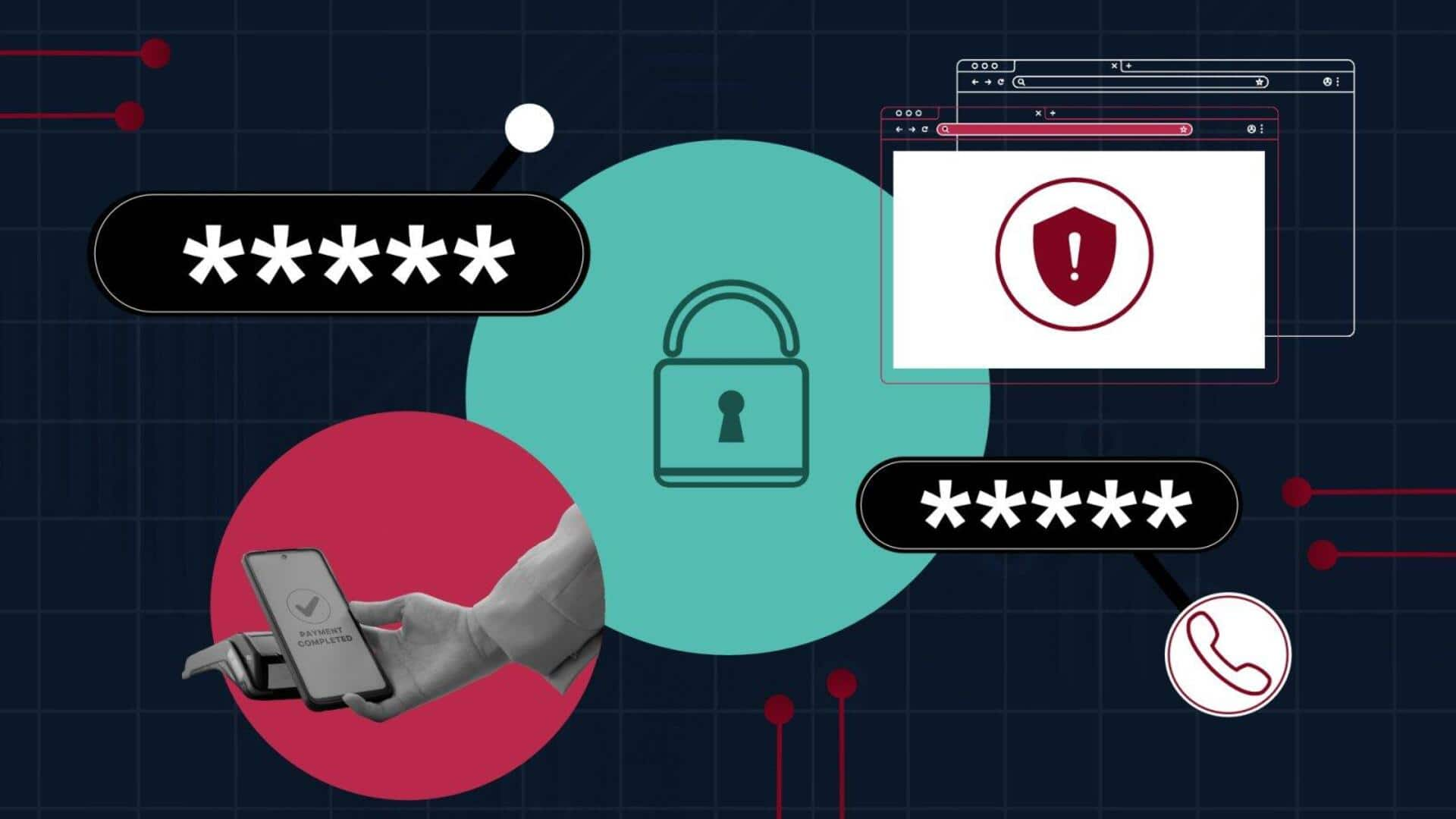
Worried about cybercrimes? Follow these tips to stay safe
What's the story
Online security is a growing concern for both individuals and businesses. With the increasing number of cybercrimes and data breaches, it is essential to safeguard your personal and financial information online. Here are some easy steps you can take to enhance your online security. These simple measures can significantly enhance data privacy and reduce the risk of unauthorized access to sensitive information.
Transaction security
Two-factor authentication is key to secure transactions
The two-factor authentication (2FA) should be used for "high-impact" activities such as transferring money or adding credit card details. This security measure combines the use of a password with another form of identification, like a text message or biometric identification. By implementing this method, users can significantly enhance the security of their online transactions, and protect their financial data.
Password protection
Use unique and strong passwords
Another effective step toward online security is the use of unique passwords for every login. Hackers often exploit identical username and password combinations across different platforms. To counter this, it is recommended to use a strong, unique password for each online account. Google Password Manager and other services can assist in generating random passwords, and automatically logging users into their accounts.
Data backup
Regular data backup shields against ransomware attacks
Regularly saving data can help prevent loss due to hardware malfunction or virus attacks, and reduce vulnerability to ransomware attacks. Cybersecurity experts suggest the 3-2-1 strategy for data backup: maintaining three copies of your data on two different types of storage, with one copy stored in a separate location preferably on cloud. This method ensures multiple layers of protection for valuable digital assets.
Software updates
Regular software updates
Regular software updates are important as they often include security patches and new security features. Key areas to focus on for updates are the operating system (OS), web browsers, and antivirus software. By keeping these elements up-to-date, users can significantly enhance their online security, and protect their devices from potential cyber threats while on the web.
Information
Privacy screens add extra layer of security for sensitive data
For those frequently working with sensitive data in public, investing in a privacy screen for their computer can provide an additional layer of security. These polarized screens restrict viewing angle between 30 and 60 degrees, making the screen appear blacked out to those around you.
VPN usage
Don't connect to a public Wi-Fi without VPN
When using public Wi-Fi, a VPN is essential to encrypt your data and hide your IP address, protecting you from potential snooping and unlocking geo-restricted content. Likewise, regularly clear your browser's cache to protect your personal data, including saved cookies, searches, and web history, which can reveal sensitive information like your home address and family details.